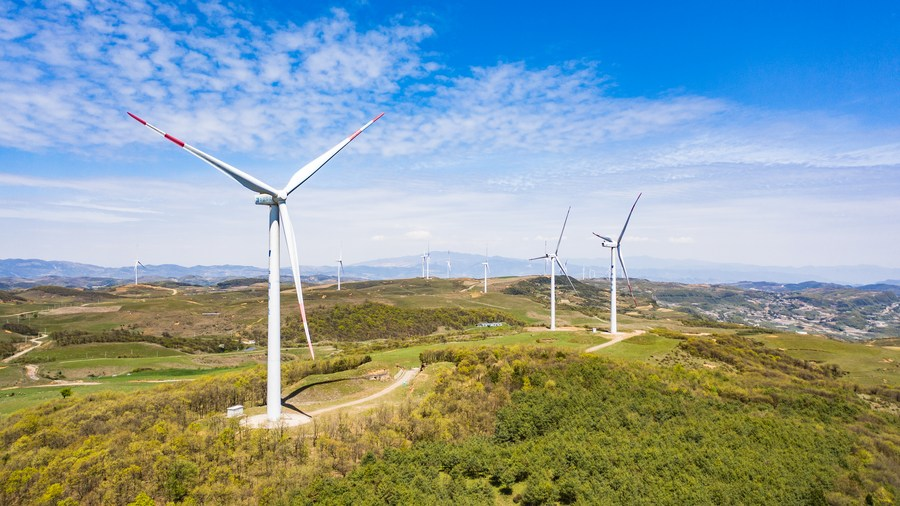By Stephen Ndegwa
It is not lost to observers that the United States has made three high-level official visits to China in about a month. The diplomatic forays are a gradual way to seek rapprochement between the two socioeconomic, cultural and political adversaries. Indeed, such heightened diplomatic activities could be a build-up to something bigger, say, like a meeting between the presidents of the two countries in the nearest future.
Three top U.S. officials have visited Beijing in recent weeks. These included visits by U.S. Secretary of State Antony Blinken, then by U.S. Treasury Secretary Janet Yellen, and a few days ago, by U.S. Special Presidential Envoy for Climate John Kerry, who landed in Beijing on July 16 to restart bilateral talks on curbing climate change. Each meeting is adding to the ground covered so far in the two countries' relations.
The superpower is taking advantage of Beijing's open door policy, even when the former pushes its partner against the wall. If China kept grudges or took the moral high ground on contentious issues, it would have stood its ground or put conditions on high-level negotiations. But the largest developing country understands that it has a global leadership role to play, and needs the cooperation of other major countries.
During his meeting with Chinese Premier Li Qiang, Kerry acknowledged the role played by Chinese President Xi Jinping and U.S. President Joe Biden in the progress made so far towards the normalization of relations. Symbolically, the two countries need to reduce the heat of their current tensions to levels that do not hinder progress both bilaterally and multilaterally. The world is watching how the outcomes of Kerry's visit will impact COP 28 to be held in the United Arab Emirates (UAE) in December. By default — the two countries are the largest economies in the world — the duo releases the most carbon emissions.
"It is incumbent upon China, the United States, and indeed all countries in the world to strengthen coordination with consensus and speed of actions," Li noted. Extreme weather has now become a sad reality in many parts of the world. Parts of Europe, Asia and North America are under heat red alerts and bracing for record heat with health warnings and evacuations. But each major polluter must take responsibility for its contribution.
For instance, while China's capital city, Beijing, has just recently experienced three consecutive days with temperature exceeding 40-degrees Celsius (104 degrees Fahrenheit) threshold last recorded in 1951, temperatures in the U.S. Southwest have risen to almost 49 degrees Celsius (120 degrees Fahrenheit). The hottest day on earth was recorded earlier this July. Temperatures in Mexico and parts of Europe are almost hitting 50 degrees Celsius. Medically, heat in a human body should not go beyond 38 degrees Celsius.
While the U.S. has been non-committal, China is proactively striving to meet its side of the bargain. In a statement before the UN General Assembly in September 2020, Chinese President Xi Jinping first announced his commitment to achieving "carbon emissions peak before 2030 and achieve carbon neutrality before 2060." Subsequently, the country formally submitted China's Mid-Century Long-Term Low Greenhouse Gas Emission Development Strategy to the United Nations Framework Convention on Climate Change in October 2021.

Wind turbines in Weining County, southwest China's Guizhou Province, April 27, 2022. [Photo/Xinhua]
Fortunately, although Former U.S. President Donald Trump abandoned the Paris Agreement, Biden has shown goodwill in tackling this existential threat to mankind. In February 2021, just hours after taking the oath of office, he signed an executive order that began a 30-day process to rejoin the Paris Agreement, the international pact on climate change.
Climate diplomacy is one of the major foreign policy planks of the Biden administration. Sending Kerry to Beijing in the scorching summer is aimed at striking the iron while it is still hot. The heat waves and flooding in the U.S., and the current heat waves in China, create an ideal environment for tackling such a grave issue of mutual concern.
If the two countries manage to break the current stalemate on their climate obligations and agree on a strategic plan to reduce carbon emissions, this milestone will send a positive sign that they are back to normalization. However, it is the U.S. that must show its commitment, particularly after former U.S. President Donald Trump's withdrawal from the Paris Agreement put the United States at odds with the international community. It's worth noting that the U.S. has emitted more carbon dioxide into the atmosphere than any other country since the beginning of the industrial age in the mid-1800s.
Lack of a concrete agreement by Kerry and his Chinese counterpart may send negative vibes both bilaterally and internationally. It will send the wrong signals that the recent visits by the U.S. top officials are duplicitous. Inaction or controversy will also claw back on the diplomatic baby steps made so far towards a decent rapprochement, and revert to high tensions.
China has been the world's largest and fastest growing renewable energy producer for more than a decade, which is enough evidence of its commitment to mitigating climate change. But its actions need support from its counterpart in order to have the large scale impact envisioned by scientists, environmentalists and industrialists.
Stephen Ndegwa, a special commentator on current affairs for CGTN, is the Executive Director of South-South Dialogues, a Nairobi-based communications development think tank.

 中文
中文



